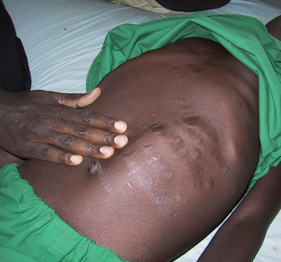
Visceral leishmaniasis (VL), also known as kala-azar, is fatal if left untreated in over 95% of cases. It is characterized by irregular bouts of fever, weight loss, enlargement of the spleen and liver, and anaemia. East Africa is currently reporting the highest number of VL cases worldwide.
Photo credits: M.Herrero
语言: English
Leishmaniasis
课程信息
Overview: Visceral leishmaniasis is an important disease in East Africa where recurrent outbreaks occur. Leishmania-HIV coinfected people have high chance of developing the full-blown clinical disease, and high relapse and mortality rates. Poverty, malnutrition and population movements in endemic areas increase the risk of developing VL. Early diagnosis and effective prompt treatment reduce the prevalence of the disease and prevents disabilities and death. This course aims at providing health workers with the necessary knowledge to understand the epidemiology, diagnosis, treatment, surveillance and outbreak investigation of this important disease in East Africa.
Learning objectives: By the end of this course, you should be able to:
- Explain the epidemiology of visceral leishmaniasis in East Africa;
- Describe the clinical aspects of common VL cases and in special situations like HIV;
- Explain how the diagnosis is made;
- Explain how to treat VL;
- List how the recording and reporting of the disease is done; and
- Describe how outbreak investigations are carried out.
Course duration: Approximately 2 hours
Certificates: A Record of Achievement certificate will be available to participants who score at least 80% in the final assessment. Participants who receive a Record of Achievement can also download an Open Badge for this course. Click here to learn how.
课程内容
Module 1: Epidemiology:
By the end of this module, you should be able to: explain how the infection is acquired, the underlaying factors triggering visceral leishmaniasis, describe the geographical distribution, and describe the age and gender distribution.Module 2 and 3: Life cycle and pathogenesis:
By the end of these modules, you should be able to: describe the life cycle of the parasite, how transmission occurs, and explain how the parasite affects the immune system.Module 4 and 5: Clinical manifestations and differential diagnosis:
By the end of these modules, you should be able to: describe the main features of the disease and list the conditions to rule out for the differential diagnosis.Module 6: Diagnosis:
By the end of these module, you should be able to: describe how the clinical diagnosis is made, list the different laboratory tests including their performance, and explain the diagnosis algorithm.Module 7: Treatment:
By the end of this module, you should be able to: list the available medicines to treat VL, describe how patients are treated, and explain how patients are monitored and followed up.Module 8: Visceral leishmaniasis in special cases:
By the end of this module you should be able to: explain VL in special situations like management of HIV-VL and concomitant malaria.Module 9: Disease surveillance and outbreak assessment:
By the end of this module, you should be able to: explain how VL surveillance is done and describe how to assess an outbreak.Final assessment